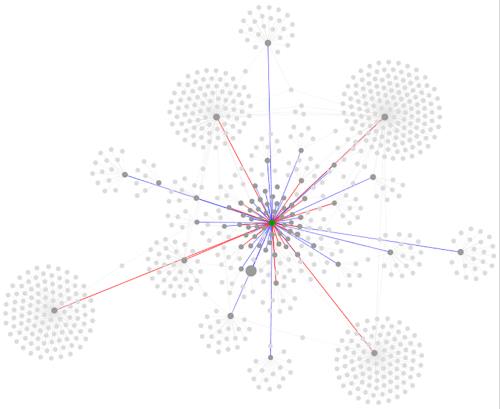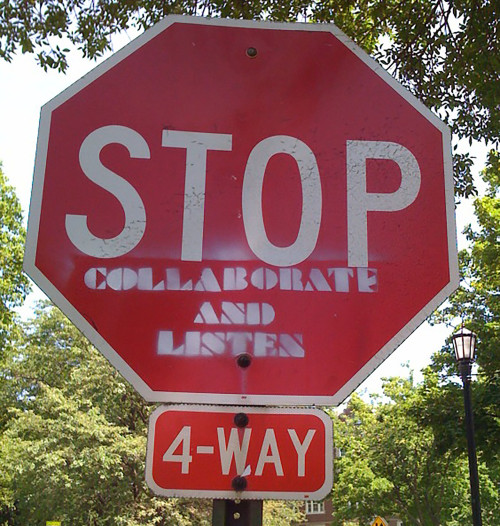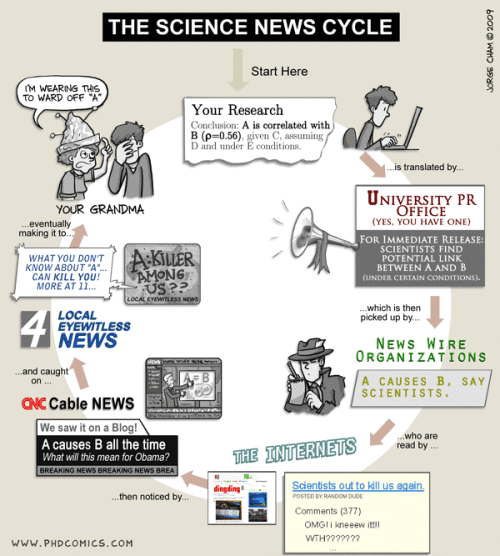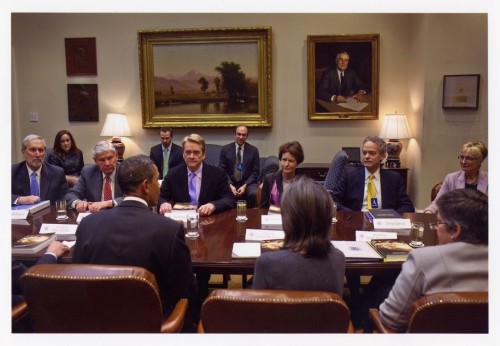Who ya gonna call? Recommendations for scientists who are called to action in a state of environmental emergency
Suzanne Webster · | Science Communication | Applying Science | 3 commentsSuzi Spitzer, Fan Zhang, Cara Scweitzer
When environmental disaster strikes, scientists are often asked to serve as first responders in the exploration of causes, consequences, and solutions to unfamiliar and unexpected problems. Scientific research and management in the context of an environmental emergency is very different from conducting standard research in a University or in the field, and scientists should be aware of the different academic and behavioral expectations, as well as the emerging ethical concerns, that accompany this transition into crisis-mode research. As scientists, one way that we can be proactive and better prepare for potential involvement in emergency-response research is to invest time and effort into building powerful and diverse networks of colleagues and collaborators. We can passively establish ourselves and make professional connections in our field of work just by being in the business over a long period of time; however, it is beneficial to take a more active approach when networking in order to efficiently and effectively expand our personal circles of colleagues. Just as it is necessary to keep up with what is happening in the scientific literature and popular press in your line of work, it is also important to keep up socially by attending or hosting conferences and workshops in order to connect with other scientists with similar interests. At these events, challenge yourself to step out of your comfort zone and be active in chasing down new contacts. Introduce yourself, don’t be afraid to talk about your own interests, and show initiative in forming new relationships. Break the social inertia! Keep in mind that it is also important to avoid limiting conversations to scientists in your own field—talk to scientists in other areas of research and cultivate non-academic relationships with non-scientists in order to diversify your contact list and broaden your perspective. In addition to upping your networking game, consider attending a leadership training course, which will teach you management and communication skills that will allow you to work more effectively and be more valuable in a group setting.

Now that you have a robust and growing professional network underway, you are more prepared when an environmental emergency surfaces. Imagine that all of the sudden, you are asked to serve on a research team with several other scientists who you have never met before in order to solve an unfamiliar problem as quickly as possible. You are uprooted from your normal research life and dropped into a completely new situation with different people. On top of that, this imminent novel problem requires you to learn a significant amount of new material that is perhaps outside of your field and you must work quickly to conquer a daunting learning curve (Dennison 2015). Now is the time to make use of your professional network! It is likely that at least one of your connections will be able to point you towards valuable resources (people, papers, etc.) that will help you and your new emergency response research team to make progress. Take advantage of the information age and use google searches and social media to do some basic introductory homework and familiarize yourself with your new colleagues and the key players and institutions involved in the emergency. It may be helpful to sketch out a thought map to help you get to know who is involved and how everyone relates to each other. Don’t hesitate to call upon contacts outside of your own organization in order to get a better set of facts and a more nuanced position. Once you begin researching, take care to develop the best possible methodologies for data collection and analysis while also balancing the urgency of time necessitated by the emergency. Furthermore, environmental emergencies place a large amount of stress on those responding to the crisis. It is especially important in these instances to take time to stop and clear your head so you can think and communicate effectively. Talk to people and, perhaps even more importantly, listen to them. Taking time to effectively collaborate will help scientific teams avoid falling victim to groupthink, or potentially overlooking game-changing individual ideas.

Another challenge presented to scientists researching environmental disasters, especially those that are high-profile and ongoing investigations, is communicating effectively with the media. In emergency situations, the media will often push scientists to talk before they are ready, perhaps leading scientists to rush to conclusions or misspeak. Scientific results are often exaggerated and sensationalized by the media, so scientists have to be very careful how they phrase their responses to questions, as well as what sound bites they provide during interviews (Boesch 2015a). For example, after interviewing a scientist about the process of phosphorus remineralization in the Chesapeake Bay, biased reporters published an article entitled “Research suggests Bay creates its own phosphorous,” which implied that farmers should be able to freely apply phosphorus to their fields because nutrient-rich run-off is not actually negatively impacting the Bay’s water quality, as scientists previously claimed (Hotchkiss 2015). Of course, as several scientists at the University of Maryland Center for Environmental Science discussed in a recent blog post, the original interpretation of the scientific results has been obscured in order to bend the study to a specific agenda (Boesch et al. 2015). Finally, as discussed in the previous blog post by MEES students, scientists need to exercise caution or even altogether avoid using terms such as “uncertainty,” “error,” and “positive trend,” which have completely different meanings for non-scientists and can be easily taken out of context by reporters and negatively affect the public’s opinion of scientists and our work (Siemek et al. 2015).

Furthermore, it is important that scientists who are competing to find a solution or who perhaps do not get along do not vent about each other to the media. For example, in the case of the BP Deepwater Horizon oil spill, NOAA scientists publically criticized another group of scientific researchers, alleging that they had jumped to conclusions, over-exaggerated possible outcomes, and failed to collect samples properly (Schrope 2010). This drama within the scientific community is dangerous in the hands of the media (or in the hands of BP!), who can emphasize this dissent and ultimately use it to discredit the opinions of any scientists involved in responding to the environmental disaster. In cases such as the BP oil spill, scientists are often required to work long hours with difficult people in challenging conditions with little sleep. It is important that we allow ourselves time to rest and think so that we can avoid the potential of taking criticism personally, getting angry, and retaliating. Our role as scientists is to provide timely information and serve as an objective voice of reason, not an emotional advocate. In the face of an environmental emergency, we must resist the pressures of the media and take care to share only professional, unbiased information or opinions based on scientific results.
Finally, there are several ethical considerations that scientists must be familiar with in order to deal with an environmental crisis. In states of environmental emergency, research findings can play a huge role in the establishment of new legislation or the litigation of parties who can potentially be held accountable for the disaster’s occurrence or consequences. Scientists should have knowledge of federal scientific integrity policies and their implications for policy making (Boesch 2015b). With these in mind, scientists involved in environmental emergency response need to recognize that they potentially play a large role in helping lawmakers and judicial systems decide how to handle the aftermath of environmental disasters, particularly those that have anthropogenic causes. Let’s again turn to the example of the BP oil spill to discuss a few ethical concerns that all involved scientists should consider. First, it is important to recognize that both the prosecution and the defense are in need of professional scientists in these situations in order to make a case in court. If a scientist is asked to defend a company who is most likely the cause of the disaster, in this case BP, is it morally wrong for them to accept this offer? This scenario is arguably the same as a lawyer defending a guilty murderer—someone has to do it! It is important to remember that scientists who are working for institutions that are perhaps at fault for an environmental emergency are not necessarily bad people or bad scientists, and their data and analyses should not be automatically discredited as biased and invalid. That being said, it is important that other scientists recognize that this is a situation in which scientific integrity has the potential to be compromised, and perhaps proceed with more caution and critical analysis than usual when interpreting results. In the end, money flow matters and a scientist’s funder or institutional affiliation may have the power to influence scientific results, either consciously or subconsciously. In cases that are high-profile and influential, such as the BP oil spill, it is perhaps not enough to trust the peer-review process; scientists should take extra care to read and judge the results for themselves and assess the study for its merits.

In the end, scientists called to action after an environmental emergency have a lot of power. As scientists, we must use our networks of colleagues to meet new people and learn new information that will help us efficiently address the problem at hand. Then, we must take care to protect the public’s perception of science by communicating effectively with the media and maintaining professional relationships with other scientists who are also working on the problem. Finally, we need to recognize potential ethical concerns and take into account any conflicts of interest that may arise in cases where the stakes on scientific results are high. Scientists who are able to accomplish these objectives can effectively and professionally research and manage environmental emergencies.
References:
- Boesch D. “Macondo Blowout: Science Controversies” Science for Environmental Management (MEES 698Y) lecture. University of Maryland Center for Environmental Science. 2015a.
- Boesch D. “Scientific Integrity” Science for Environmental Management (MEES 698Y) lecture. University of Maryland Center for Environmental Science. 2015b.
- Boesch D., Boynton W., Cornwell J., Dennison, W., Kemp M., Testa J. Chesapeake Bay Phosphorus Pollution Is Derived from Land-Based Sources. IAN-UMCES blog. April 3, 2015
- Schrope M. “A scientist at the centre of the spill.” Nature. Issue 466 pp 680-684. 2010
- Siemek S., Ni W., Klick S. Climate change: teaching the public these are not dirty words. IAN-UMCES blog. April 1, 2015.
- Hotchkiss B. (2015, March 17). “Research suggests Bay creates its own phosphorous.” The Delmarva Farmer. March 17, 2015.
- Dennison B. “Aligning people, projects, and pathways to improve the application of ecological research” Science for Environmental Management (MEES 698Y) lecture. University of Maryland Center for Environmental Science. 2015.
About the author
Suzanne Webster

Suzi Webster is a PhD Candidate at UMCES. Suzi's dissertation research investigates stakeholder perspectives on how citizen science can contribute to scientific research that informs collaborative and innovative environmental management decisions. Her work provides evidence-based recommendations for expanded public engagement in environmental science and management in the Chesapeake Bay and beyond. Suzi is currently a Knauss Marine Policy Fellow, and she works in NOAA’s Technology Partnerships Office as their first Stakeholder Engagement and Communications Specialist.
Previously, Suzi worked as a Graduate Assistant at IAN for six years. During her time at IAN, she contributed to various communications products, led an effort to create a citizen science monitoring program, and assisted in developing and teaching a variety of graduate- and professional-level courses relating to environmental management, science communication, and interdisciplinary environmental research. Before joining IAN, Suzi worked as a research assistant at the Marine Biological Laboratory in Woods Hole, MA and received a B.S. in Biology and Anthropology from the University of Notre Dame.
Next Post > Reginald V. Truitt in his own words: A visit to the Maryland Room archives
Comments
-
Stephanie Siemek 11 years ago
It is impossible to predict when an environmental emergency will occur, what it will entail, and its magnitude; however, we can at least be more prepared for them. Scientists can infer from past experiences what environmental emergencies are most common and likely to occur (e.g. oil spills, release of toxic wastes, natural disasters, etc.). Therefore, as this article mentions, scientists should already have committees developed and action plans ready to go. It does not have to be up to the government to develop an ad hoc committee. If certain scientists are appointed to address a certain issue, then those scientists at least already have a network built that they can turn to for further collaboration and ideas. It would then give scientists an opportunity to be more knowledgeable about how to respond, be more prepared for questions from the media, and could help produce a more proficient emergency response.
-
Wenfei Ni 11 years ago
I like the unique perspective on the benefits of the collaboration in different scientific fields and nonacademic area. As the environmental event or crisis emerges, the gathering of stakeholders and scientists partnership to find an appropriate pathway and take timely action will generate efficient solution to solve the problems. However, for the scientific experts themselves in certain area, it is also a good opportunity to build connections and explore where the science is needed. Furthermore, it could be a turning point of a scientist’s career path when he/she finds the talent in science-related communication or management or decision-making, driving them to participate as governors and administrators. The addition of the scientific background governors and policy-makers would make it easier for quick-decision making when faced with emergent problem, or dealing with complicated environmental issues, like climate change.
-
Martina Gonzalez Mateu 11 years ago
I like the figure that shows the science news cycle! And I agree with the authors about the importance of scientific communication to the media in an effective way that will not lead to distortions of the results. This is especially important in cases of environmental disasters, and as the blog points out it is crucial that scientists don't get rushed into conclusions and report incorrect or incomplete information to the media. The results of that could be very harmful for the investigation process, and if multiple different reports get widespread media attention, it can harm the image of the scientific community.